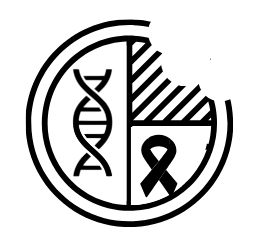Reading time: 5 minutes
Susan Egbert
Genomics has significantly advanced the field of oncology by elucidating the genetic components of a range of cancer types. This progress has contributed to enhanced cancer diagnoses and more efficacious treatments.1-3 From targeted therapies to immunotherapy, genomics has revolutionized the landscape of cancer care. However, the current status and future prospects of genomics in the context of oncology warrant further investigation.
Genomics encompasses the study of an individual’s genes and their interactions that influence traits and diseases. Conversely, oncology focuses on the study of cancer and its therapeutic approaches. The convergence of these two disciplines has yielded breakthroughs in personalized medicine, which endeavors to administer customized treatments to patients based on their distinct genetic makeup.2,3 Cancer is a multifaceted disease; each patient’s cancer exhibits unique characteristics. Genomics has facilitated the comprehension of the genetic underpinnings of cancer and the development of targeted therapies that address its root cause.
Encouraging outcomes have been observed with personalized cancer treatment, such as complete remission and prolonged survival rates in certain patients. Nevertheless, there is still much to be discovered, as the field of genomics and oncology is evolving rapidly. As our understanding of the genetic foundations of cancer deepens, novel treatments and therapies will emerge. The future of cancer care is expected to be increasingly personalized, with interventions tailored to the specific genetic profiles of individual patients. This article delves into the current state of genomics and oncology, shedding light on the prospects in these dynamic and captivating domains.
Applications of genomics in oncology
The field of oncology has been revolutionized by the advent of genomics. Genomics has allowed us to understand the genetic basis of cancer, develop new diagnostic tools, and identify new therapeutic targets.1-4 One of the most exciting applications of genomics in oncology is using genomic profiling to identify mutations in tumor DNA.5 This information can then be used to tailor treatment to the specific genetic profile of the tumor, leading to better patient outcomes. Some real-life applications can be seen in Figures 2 and 3.
Advances in genomics and oncology research
Genomics and oncology research have experienced significant advancements in recent years, leading to a better understanding of cancer biology and developing more effective treatments. One of the most exciting breakthroughs in this area has been the development of precision medicine, which uses genomic information to tailor cancer treatments to an individual patient’s specific tumor characteristics. By identifying the specific genetic mutations driving a patient’s cancer, doctors can select targeted therapies more likely to be effective, sparing patients from unnecessary treatments and side effects. In addition to precision medicine, advances in genomics have also led to the discovery of new cancer biomarkers, which are molecules or genetic signatures that can indicate the presence of cancer or predict how a patient will respond to treatment. With the help of these biomarkers, doctors can make more informed decisions about how to treat their patients, improving outcomes and reducing side effects. Other exciting developments in genomics and oncology research include immunotherapy, which harnesses the immune system’s power to fight cancer, and the development of liquid biopsies, which allow physicians and other healthcare providers to detect cancer using a simple blood test. As the field continues to evolve, we can expect to see even more breakthroughs that will transform how we diagnose and treat cancer.
On the flip side, some challenges with genomics must be addressed before they can be fully incorporated into routine care. One of the challenges lies in translating genomic data into actionable insights for therapy. While genomics has provided us with vast amounts of data, understanding the underlying mechanisms and how specific genetic variations contribute to diseases is still a complex and ongoing process. Identifying the causal relationship between genomic variants and disease phenotypes requires comprehensive research and validation. Furthermore, integrating genomics into clinical practice and healthcare systems poses another set of challenges. Implementing genomic medicine requires addressing data interpretation, privacy concerns, ethical considerations, and accessibility. It is a multifaceted endeavor to develop effective strategies to harness genomics’ potential and translate it into routine clinical care. Moreover, the complexity of human biology and the interplay between genes, environment, and lifestyle factors add further complexity to genomics in therapy. Understanding how genetic variations interact with environmental factors and their impact on disease manifestation is a complex puzzle that genomics is continuously working to unravel.
Looking ahead, genomics holds enormous potential in oncology. As our understanding of genetic mutations and their role in cancer deepens, we will develop more targeted therapies tailored to individual patients’ genetic profiles. Furthermore, technological advancements and decreasing sequencing costs will make genomics more accessible and affordable, leading to widespread use in clinical practice and research. This will drive further advancements in oncology. In summary, genomics has transformed oncology and has great promise for the future, allowing us to uncover new insights and develop innovative treatments that improve the lives of cancer patients globally.
Edited by Bhavuk Garg
References
- Kamps R, Brandão RD, Bosch BJ, et al. Next-Generation Sequencing in Oncology: Genetic Diagnosis, Risk Prediction and Cancer Classification. Int J Mol Sci. 2017;18(2):308. Published 2017 Jan 31. doi:10.3390/ijms18020308
- Berger MF, Mardis ER. The emerging clinical relevance of genomics in cancer medicine. Nat Rev Clin Oncol. 2018;15(6):353-365. doi:10.1038/s41571-018-0002-6
- Sweet-Cordero EA, Biegel JA. The genomic landscape of pediatric cancers: Implications for diagnosis and treatment. Science. 2019;363(6432):1170-1175. doi:10.1126/science.aaw3535
- Wang SW, Gao C, Zheng YM, et al. Current applications and future perspective of CRISPR/Cas9 gene editing in cancer. Mol Cancer. 2022;21(1):57. Published 2022 Feb 21. doi:10.1186/s12943-022-01518-8
- Viñal D, Martínez D, Higuera O, de Castro J. Genomic profiling in non-small-cell lung cancer in young patients. A systematic review. ESMO Open. 2021;6(1):100045. doi:10.1016/j.esmoop.2020.100045


Leave a comment